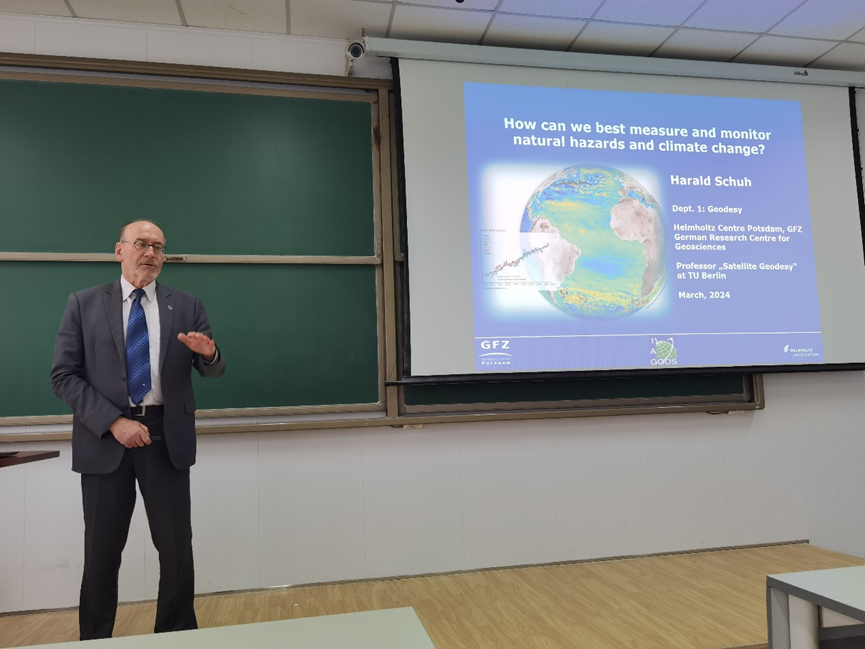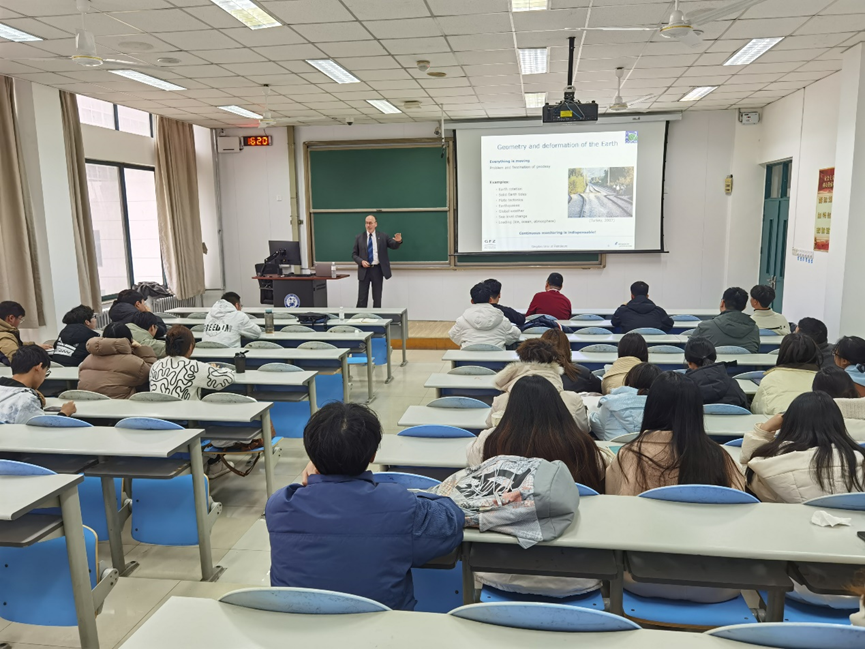To expand students’ academic vision, understand academic frontier knowledge and improve students' academic enthusiasm, Prof. Harald Schuh, academician of the German National Academy of Science and Engineering and honorary president of the International Association of Geodesy, was invited by Prof. Kaifei He to give an academic report. The report was hosted by Prof. Kaifei He.

On the afternoon of March 11, Prof. Harald Schuh of the German Geoscience Research Center (GFZ) gave a lecture entitled “How can we best measure and monitor natural hazards and climate change” for our teachers and students in Room 416, South Hall. Firstly, Prof. Harald Schuh introduced the task of geodesy, and pointed out that the precision earth reference frame plays an important role in modern geodesy and is closely related to the monitoring of earth changes, such as plate movement and global sea level rise. Then, an overview of the various natural hazards and global change phenomena that can be observed by geodetic techniques will be given, a variety of spatial geodetic measurements techniques are introduced from different scales, such as GNSS (Global Navigation Satellite Systems), SLR (Satellite Laser Ranging), VLBI (Very Long Baseline Interferometry), Gauge stations, etc. The importance of establishing an accurate and stable Global Geodetic Reference Framework (ITRF) was also emphasized in the UN General Assembly document. Then, the application of GNSS in seismic displacement monitoring, volcanic monitoring, tsunami warning and forecast, and atmospheric monitoring is emphatically introduced. Finally, he also introduced the GFZ uses a lot of GNSS data to process GNSS data from more than 1000 observation stations around the world every day, and provides a large number of GNSS products with high spatial and temporal resolution and high precision. After the report, Prof. Harald Schuh had a close communication with the teachers and students on the classroom, and patiently answered the questions raised by the students.

Harald Schuh is a member of the German National Academy of Science and Engineering and honorary President of the International Association of Geodesy (IAG). He is currently a professor of satellite Geodesy at Tu Berlin, and president of the German Commission for Geodesy (DGK). He was the head of the department of earth sciences at the German Research Centre for Geosciences (GFZ) from 2012 to 2023. He received his PhD in geodesy from the University of Bonn in 1986, was Director of the Institute of Geodesy and Geophysics (IGG) in 2003, and President of the International Association of Geodesy (IAG) from 2015 to 2019. His major honors include: EU Cartesian Award (2003), Fellow of the International Association of Geodetic Surveys (IAG), etc. His main research interests include space geodesy, VLBI, global navigation satellite systems, the ionosphere, the rotation of the Earth, and its interaction in the Earth system.
(Author: Shuo Wang, Reviewer: Kaifei He,Source: College of Oceanography and Space Informatics)

